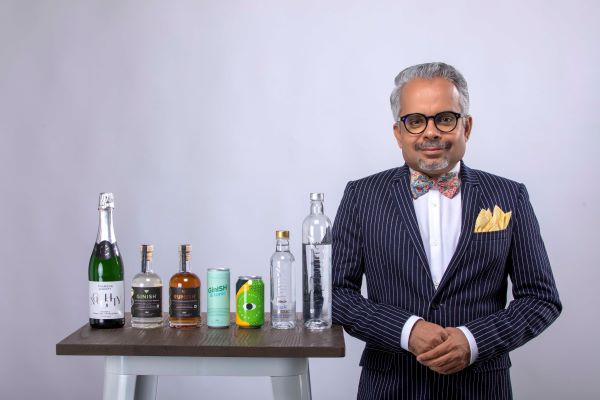Consumption of no, low alcohol drinks is likely to rise by 31% in next two years

Taruna Sharma
Leading the conscious consumption movement in India through their products by building awareness and making zero-percent brands easily accessible to people who want to consume more responsibly is the Zero Percent Shop, India. It is a division of Third Culture Group, Ylitorno, Lapland, Finland.
Set up with an aim to help mindful customers move towards a more wholesome way of living, the Zero Percent Shop offers a unique selection of curated food and beverage brands in the categories of 0% alcohol, 0% dairy, 0% pesticides, 0% sugar, 0% microplastic, 0% meat and fine water. Life & More spoke to Ganesh Iyer, Indian Subcontinent, Zero Percent India. Excerpts:
Who is the brain behind Zero Percent Shop? When was it launched?
The genesis behind zero percent is our Group Chairman Aman Gupta. As a part of understanding of his own lifestyle he made changes in his consumption habits from first stopping to consume dairy products, then a drop in sugar intake and meat and eventually a alcohol detox that led to a futile search to find a single platform where consumers could get their hands on alternatives in the form of 0% dairy 0% Meat, 0% alcohol 0% sugar 0% guten, 0% pesticide and 0% microplastics. Thus came up with the idea to start Zero Percent in the year 2019. Zero Percent’s vision is to represent the leading brands in the 0% alcohol, 0% dairy, 0% pesticide, 0% sugar, 0% gluten, 0% meat, 0% microplastics and fine water categories and make these brands easily accessible to consumers to be healthier and happier.
How do you go about raising awareness over zero-percent brands among people? How far have you succeeded?
More than ever before in this unfortunate and turbulent times wherein our immune system has been found wanting to fight against this deadly pandemic , consumers are finally placing importance and premium on their health and well-being and people are being mindful of what they consume in their day today life. Parallel to this the global campaign for Clean Label has been gaining momentum and have now become a force to reckon with in the food and beverage industry. We hope that as awareness grows, more and more consumers will take the initiative to make individual lifestyle changes. It has never been easier to consciously change your consumption as there are so many sustainable alternatives. If consumers demand change, then the industry must follow. If you think about smoking cigarettes 20 years ago to today, I think many of the categories we are talking about here will look like this in 10-20 years. It’s too early a stage to measure the success or failure for this simply because this requires collective and genuine efforts for all likeminded consumers to come forward to adopt this not as a fad but a lifestyle that is here to stay.
What all is available under 0% alcohol, 0% dairy, 0% pesticides, 0% sugar, 0% microplastic, 0% meat and fine water?
In the Indian context, for now we have launched only the 0% alcohol portfolio (we will complete a decade of being the first and market leader in HoReCa Category with VEEN Natural Mineral Water in Premium Glass Packaging under the Fine Water Segment) simply because we feel that a sustained training and education campaign is required to make people understand the purpose of Mindful Consumption. Under the 0% alcohol portfolio we have COAST Beer, Ginish , Rumish, “ Noughty” Sparkling Wine, GinishTonic RTD, and our Artisan Mixers consisting of Tonic, Gingerale & Bitter Lemon. These brands are currently listed and available in close to 45- 48 restaurants and bars across the country.
Walk us through the changing landscape of alcohol consumption in India.
India by and large mimics US and UK markets when it comes to premium alcohol consumption and pattern and basis this premise, we are likely to see a significant drift towards lower ABV and seltzers in the coming years.
Do people lean more towards non-alcoholic beverages or alcohol-free beverages?
The global no/low alcohol market is projected to continue growing as consumers seek to reduce their alcohol consumption. “What we’re seeing is a moderation trend that’s sweeping across key global markets, and that’s bringing with it increased demand for reduced alcohol, or alcohol-free drinks,” says IWSR. Globally, no and low alcohol drinks are projected to increase 31% by 2024. A recent study by the Portman Group found that 24% of British drinkers are keen to cut back on booze, rising to nearly a third (31%) for the 18-24 age bracket, dubbed ‘Generation Sensible’.

